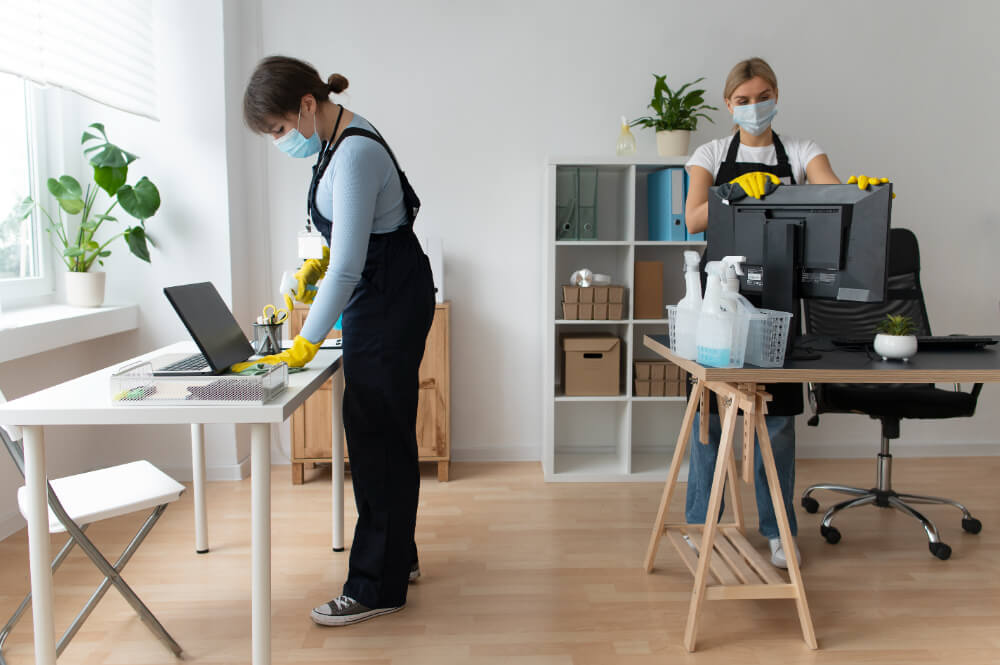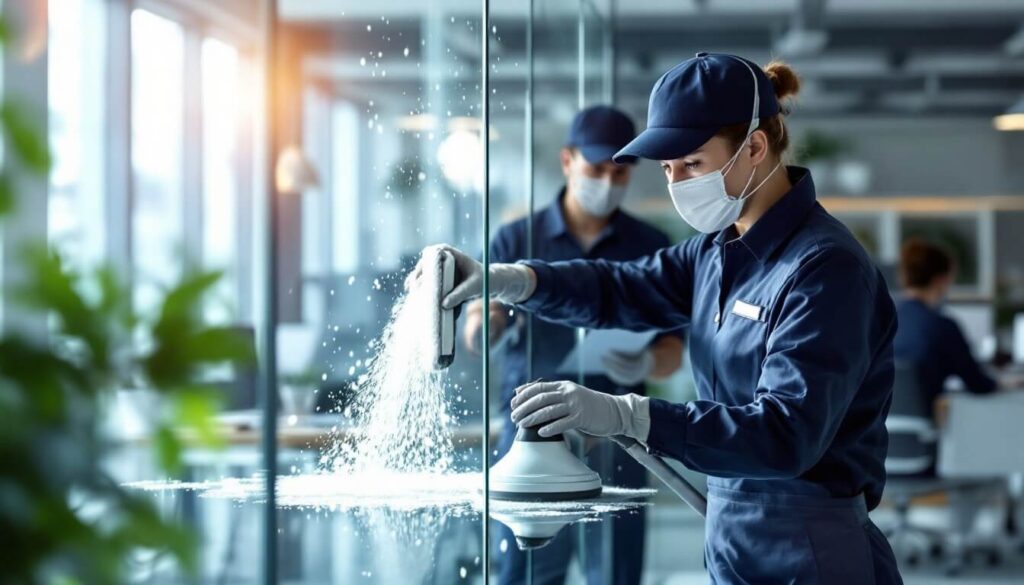In the heart of New Zealand, Eco-Friendly Cleaning Wellington stands out as a city dedicated to sustainability. The desire to protect the environment and reduce ecological footprints is felt everywhere, from local government policies to the choices made by businesses every day.
One area where many companies are focusing their sustainability efforts is in commercial cleaning. With an increasing number of businesses opting for eco-friendly solutions, it’s important to understand how you can integrate these practices into your own workplace.
If you’re wondering how to make your commercial cleaning more sustainable or what it takes to adopt eco-friendly solutions, this guide will help you navigate through the options, benefits, and best practices.
We’ll explore the common concerns businesses have, provide practical tips, and ensure that the transition is as seamless as possible—without sacrificing cleanliness or efficiency.

Why Eco-Friendly Cleaning is Important for Businesses
Before diving into the specifics of eco-friendly cleaning products and techniques, it’s worth understanding why making the switch is important.
In Wellington, many businesses are making sustainability a priority not only because it’s better for the planet, but also because it’s beneficial for their bottom line.
Healthier Work Environment
Eco-friendly cleaning products are designed with your health in mind. Traditional cleaning solutions often contain harmful chemicals like ammonia, chlorine bleach, and phthalates that can irritate the respiratory system, cause skin reactions, and even trigger asthma.
By opting for non-toxic, natural alternatives, you reduce these health risks and promote a cleaner, safer space for employees, customers, and visitors.
In Wellington, where businesses are keen to ensure their environments are welcoming, using green cleaning methods can be a competitive edge.
You’re not just cleaning surfaces; you’re creating a healthier, more sustainable workplace.
Reducing Your Environmental Impact
The environmental impact of traditional cleaning products cannot be overstated. Many chemical cleaners are made from non-renewable resources, packaged in plastic containers, and end up in the water systems after they are washed down drains.
Eco-friendly cleaners, however, are made from biodegradable ingredients, often use less packaging, and don’t contribute to water or air pollution.
With more customers and clients concerned about sustainability, businesses that take steps to reduce their ecological footprint stand out as responsible and future-focused.
Wellington, being one of the most eco-conscious cities in New Zealand, expects businesses to lead the way in adopting greener practices.
By making the switch to eco-friendly cleaning solutions, your company can make a lasting impact on both your customers and the environment.
Cost Efficiency and Compliance
Over time, eco-friendly cleaning can actually save you money. Many businesses mistakenly think that green products are expensive, but as green cleaning techniques often use less product, they can reduce long-term costs.
You may also find that eco-friendly cleaners are more concentrated, so you’ll need to use less of them, resulting in fewer purchases.
Additionally, New Zealand’s growing environmental standards are putting increasing pressure on businesses to comply with sustainability regulations.
By choosing green cleaning products, you’re proactively ensuring your business is on the right side of the law while also strengthening your brand’s reputation.
Tips for Switching to Eco-Friendly Commercial Cleaning
Understand What Eco-Friendly Means
The term “eco-friendly” is broad, and not every product labeled as such is truly sustainable. In New Zealand, several certifications exist to help guide businesses to genuinely green products:
- Environmental Choice New Zealand: This certification ensures that products meet high standards for environmental impact, including factors such as energy use, water consumption, and biodegradability.
- Green Seal: A widely recognized certification that indicates a product has met stringent environmental and performance criteria.
- Certified by EcoLogo: A certification that ensures products are low in toxicity and made from renewable resources.
When purchasing cleaning products, make sure to look for these certifications to ensure they’re genuinely eco-friendly.
A product might claim to be “green,” but unless it holds a valid certification, it may not meet environmental standards.
Choose Non-Toxic Cleaning Products
The foundation of an eco-friendly commercial cleaning strategy is choosing the right cleaning products.
The good news is that you don’t have to sacrifice effectiveness for sustainability. Eco-friendly cleaning products are highly effective, often outperforming their chemical-laden counterparts in areas like grease removal and surface disinfection.
What to look for in non-toxic products:
- Natural, Plant-Based Ingredients: These ingredients, such as vinegar, baking soda, and citric acid, are gentle on both your surfaces and the planet.
- Free of Harsh Chemicals: Avoid cleaners that contain harmful substances like ammonia, bleach, and phosphates.
- Biodegradable: Choose products that break down naturally without polluting the environment.
Examples of effective eco-friendly cleaning products for businesses include biodegradable all-purpose cleaners, natural glass cleaners, and non-toxic disinfectants.
Incorporate Green Cleaning Tools
It’s not just about what you clean with; it’s also about how you clean. Eco-friendly cleaning tools play a significant role in reducing the environmental impact of your commercial cleaning efforts.
Below are some tools that can make a big difference:
- Microfiber Cloths: These high-efficiency cloths capture dirt and bacteria without the need for harsh chemicals. They can be washed and reused hundreds of times, reducing waste and saving money in the long run.
- Energy-Efficient Vacuum Cleaners: Choose vacuum cleaners that are certified by Energy Star, which ensures that the product is energy-efficient. These vacuums use less electricity, which means a lower carbon footprint.
- Steam Cleaners: These cleaning tools rely on hot steam to clean and sanitize surfaces, reducing the need for chemicals. They’re great for disinfecting floors, kitchens, and bathrooms without harming the environment.
- Automatic Dispensers: Installing automatic dispensers in your workplace ensures that the right amount of cleaning product is dispensed each time, reducing product waste and minimizing the risk of overuse.
Train Your Staff
Even with the best products and equipment, eco-friendly cleaning can fall short if your cleaning team isn’t properly trained.
Make sure your cleaning staff understands the importance of using eco-friendly cleaning methods, not just for the benefit of the environment, but also for the safety and health of everyone in the workplace.
Train your team to:
- Use the right amount of product: Overuse of cleaning products not only wastes money but can also harm the environment.
- Properly store cleaning supplies: Ensure all products are stored in safe, secure places and away from direct sunlight, which can degrade certain ingredients.
- Follow best practices for disposal: Make sure staff members are aware of the correct disposal methods for cleaning products, packaging, and materials.
Regular training sessions and periodic refreshers will ensure that your eco-friendly cleaning program stays on track.
Recycle and Reduce Waste
A crucial part of eco-friendly cleaning is reducing the waste produced in the cleaning process.
Here are a few simple steps you can take:
- Switch to reusable cleaning cloths: Instead of using paper towels, opt for reusable microfiber cloths. These can be washed and reused, drastically cutting down on waste.
- Recycling and composting: If your business generates waste from cleaning, make sure there’s a clear recycling and composting system in place.
- Bulk buying: Instead of buying small bottles of cleaning products, consider purchasing larger, bulk quantities. This will reduce the packaging waste that is associated with smaller bottles and containers.
Focus on Water Conservation
Water is a precious resource, and using less water in cleaning is a simple way to reduce your environmental impact.
Choose cleaning methods that use minimal water, such as dry mopping or using a spray bottle for floor cleaners.
In kitchens and bathrooms, consider installing water-efficient faucets and using waterless cleaning products when possible.

Best Practices for Maintaining Eco-Friendly Commercial Cleaning
Set Clear Cleaning Schedules
Eco-friendly cleaning is all about sustainability, so setting up a regular, consistent cleaning schedule is key to maintaining cleanliness without overdoing it.
Too much cleaning with eco-friendly products can still waste resources, so make sure your cleaning schedule is efficient.
Create a cleaning calendar that identifies which areas of the workplace need to be cleaned daily, weekly, and monthly.
Prioritize high-traffic areas, while ensuring that less-used spaces are still cleaned but not excessively so.
Monitor Your Progress
As with any new practice, it’s important to monitor how well your eco-friendly cleaning solutions are working.
Track the effectiveness of products, how much waste you’re reducing, and employee satisfaction.
Are you seeing improvements in indoor air quality or fewer chemical-related health complaints? Is the cleaning process more efficient, or are you spending more time than necessary?
By keeping tabs on these factors, you can fine-tune your approach and make necessary adjustments.
Conclusion
Making the transition to eco-friendly commercial cleaning solutions in Wellington is more than just a trend; it’s a responsible choice for businesses that care about the environment, their employees’ health, and the future of the planet.
By following these tips and best practices, your business can reduce its carbon footprint, improve air quality, and help make Wellington an even greener place to live and work.
Taking small steps toward greener cleaning practices can have a big impact over time. Start with the basics—choose eco-friendly products, educate your staff, and reduce waste.
Then, continue refining your processes to ensure that your cleaning routine is as sustainable as possible.
If you’re ready to make the switch or have already started incorporating eco-friendly practices, share your journey in the comments.
What challenges have you faced? Or what eco-friendly products have you found to be a game-changer? Let’s keep the conversation going and make Wellington a cleaner, greener place for all!